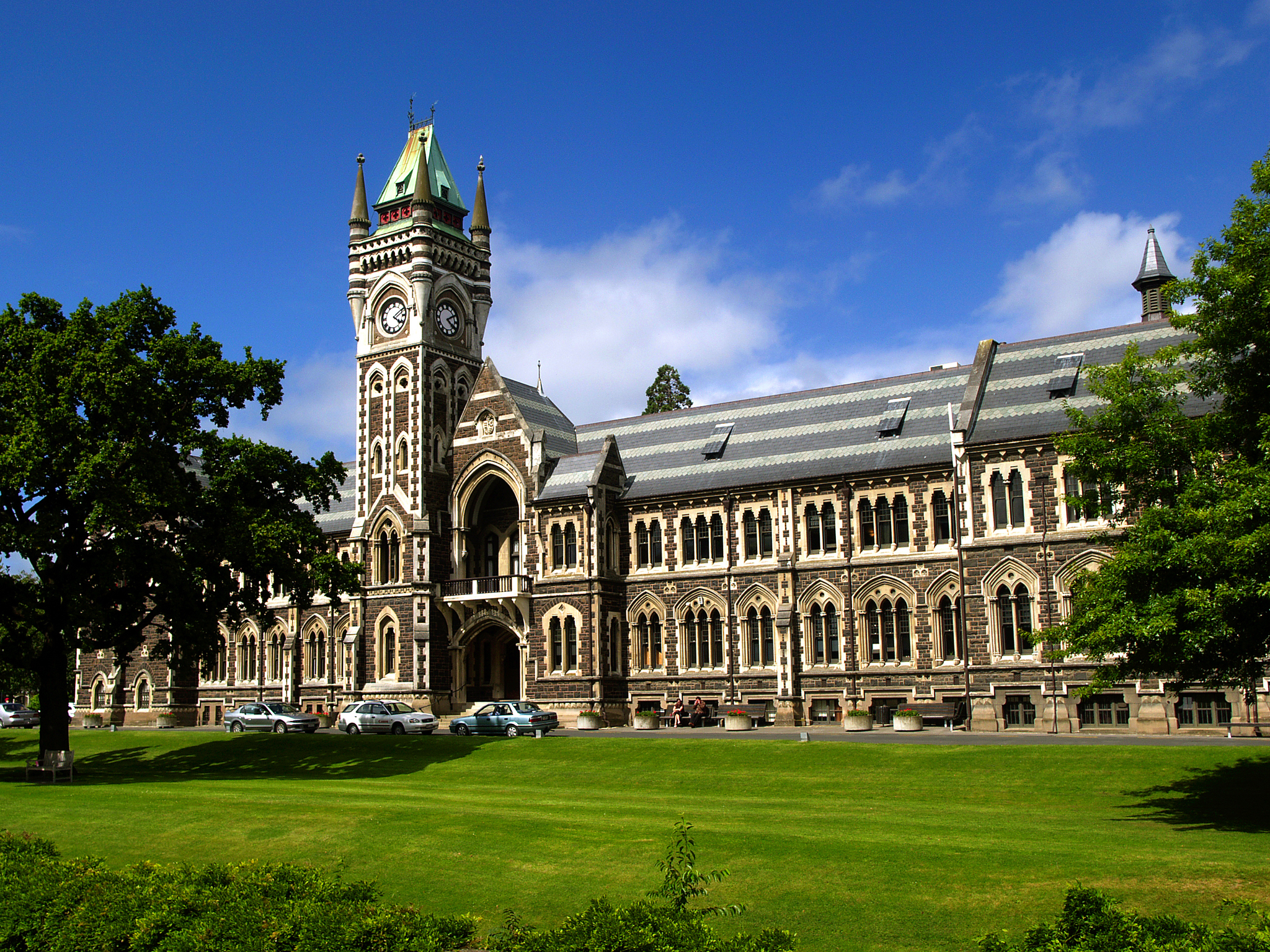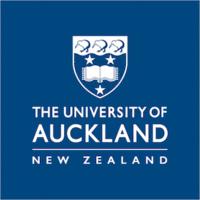Bachelor of Optometry
The Bachelor of Optometry (BOptom) is accredited by the Optometry Council of Australia and New Zealand.
This program enables you to develop communication, empathy and problem-solving skills, particularly working with children, the elderly and the partially sighted.
It will prepare you for registration as an Optometrist, and you’ll be equipped to diagnose visual problems or impairments, advise on the prevention of vision loss, prescribe and provide treatment.
This program covers both theory and the clinical aspects of Optometry, preparing you for the workforce after graduation.
Entry into the BOptom is limited and competitive. You will be selected on the basis of academic merit and personal qualities exhibited during the admission interview (MMI). There are 60 places available each year.
Campus Information
Grafton Campus
Originally established as the School of Medicine, the Grafton Campus (opposite Auckland Hospital on the boundary of Auckland Domain) houses the Faculty of Medical and Health Sciences, including a café, health services, and the Philson Library.
Intakes
- Feb
- March
Application Processing Time in Days: 30
Application Process
Minimum English Language Requirements
| English Level Description | IELTS (1.0 -9.0) | TOEFL IBT (0-120) | TOEFL CBT (0-300) | PTE (10-90) | |
|---|---|---|---|---|---|
| Expert | 9 | 120 | 297-300 | 86-90 | |
| Very Good | 8.5 | 115-119 | 280-293 | 83-86 | |
| Very Good | 8 | 110-114 | 270-280 | 79-83 | |
| Good | 7.5 | 102-109 | 253-267 | 73-79 | |
| Good | 7 | 94-101 | 240-253 | 65-73 | |
| Competent | 6.5 | 79-93 | 213-233 | 58-65 | |
| Competent | 6 | 60-78 | 170-210 | 50-58 | |
| Modest | 5.5 | 46-59 | 133-210 | 43-50 | |
| Modest | 5 | 35-45 | 107-133 | 36-43 | |
| Limited | 4 | 32-34 | 97-103 | 30-36 | |
| Extremely Limited | < 4 | < 31 | < 93 | < 30 |
Job Opportunity Potential
On graduation, you can be accredited as a registered optometrist, able to diagnose and treat eye diseases in New Zealand and Australia. The majority of optometrists enter private practice, which offers regular hours and the freedom to choose where to live and work. Optometrists can also practice in hospitals and clinics or work in the industry or research. We advise that the University of Auckland is not involved in the employment of graduates and can make no guarantee of post-qualification registration or employment in New Zealand or any other country.
Jobs related to this program
- Registered optometrist
PSW Opportunity
- During study, all students on a student visa can work up to 20 hours per week during semester and full time during vacations.
- After completing Level 7 Bachelor’s Degree or Higher Qualification, a student will get a three years open post-study work visa.
- After completing Level 8 Post Graduate courses of 1 year, students get 1 year PSW.
Admission Requirement / Eligibility Criteria
Undergraduate entry
To apply for BOptom as an undergraduate student you must complete the first year of the Bachelor of Science (BSc) (Biomedical Science) at the University of Auckland, or the Health Sciences First Year at the University of Otago. This must be completed on a full-time basis and must include the following courses:
Option A: Bachelor of Science (BSc) Biomedical Science, University of Auckland
- CHEM 110: Chemistry of the Living World
- BIOSCI 107: Biology for Biomedical Science - Cellular Processes and Development
- MEDSCI 142: Biology for Biomedical Science - Organ Systems
- BIOSCI 101: Essential Biology: From Genomes to Organisms
- PHYSICS 160: Physics for the Life Sciences
- BIOSCI 106: Foundations of Biochemistry
The remaining 30 points must comprise of:
- Either POPLHLTH111: Population Health OR one 15 points elective course from the Science schedule compatible with the Biomedical Science program
- One 15 point General Education course listed in the Open or EMHSS Schedule (excluding BIOSCI 100G, MEDSCI 100G, MEDSCI101G, OPTOM101G, POPLHLTH 103G).
Option B: University of Otago's Health Science First Year (HSFY)
- CHEM191: The Chemical Basis of Biology and Human Health
- CELS191: Cell and Molecular Biology
- PHSI191: Biological Physics
- BIOC192: Foundations of Biochemistry
- HUBS192: Human Body Systems II
- HUBS191: Human Body Systems I
- PUBH192: Foundations of Epidemiology
- Optional paper
Important information about the impacts of Covid-19 on clinical programme entry for 2021
Students interested in applying for one of the limited entry Faculty of Medical and Health Sciences clinical programmes in 2021 should be aware of some COVID-related adjustments.
Students undertaking First-Year courses were required to sit the Clinical Selection Test (CST). Please continue to check the CST Canvas page which is updated regularly.
Your Semester Grade will be used for ‘Eligibility’. For 2021 admission, the combined Semester Grade + CST Grade will be used for ranking for ‘MMI invite’ and ‘Final Offer’.
The Multiple Mini Interviews (MMI) will take place. Strategies for holding MMI at various alert levels are being finalised and more information will be provided about this soon.
Interview Eligibility
You will need to achieve a minimum Grade Point Average (GPA) of 6.0 across all 8 first year courses, with no fails, to be eligible for consideration for an admission interview (MMI – Multi Mini Interviews). The CST will not be used.
Interview Ranking
If eligible, you will be ranked for interview invitation. This ranking will be based on your grades in the core courses (in bold above). For the courses completed in Semester 1, 2020 the grade will be the composite grade from your official Semester Grade and CST grade. If your final grades are not available at the time of interview ranking, an interim grade (highest possible) will be temporarily assigned. Official final results (combined with the CST grade) will be used for the final selection.
Final Selection Ranking
Applicants will be offered admission to the programme according to the rank order until the available places in the category are filled. Interviewed applicants’ final ranking is based on a weighting of the following components:
- GPA for core course (combined with the respective CST grade for Sem 1 courses): 50%
- Multi Mini Interview: 50% (a minimum threshold will apply, this will be determined year to year)
Graduate entry
To apply for the BOptom under the Graduate entry category, applicants must have completed a relevant degree/degrees on a full-time basis at a recognized university. Your last year of full-time study must be no more than five years prior to the year of application. A minimum of 105 points over Semesters One and Two per academic calendar year is required to be considered as full time for BOptom admission. A typical academic calendar year is 120 points.
Depending on your previous study you may need to undertake part or all of the First Year courses before commencing Part II. If you are required to take Part I courses, you must pass all these courses clearly within one year in order to proceed to Part II. This will be assessed as part of your application for admission.
Interview Eligibility
Applicants will need to achieve a minimum Grade Point Average (GPA) of 6.0 across 3 years of full-time study to be eligible for consideration for an admission interview (MMI – Multi Mini Interviews). If a graduate applicant has completed more than three years of full-time study, the best three years of study will be used for GPA calculations. Shortlisted international applicants will be interviewed over Skype/phone.
Interview Ranking
Eligible applicants are ranked for interview invitations based on the GPA from their last two academic years of full-time study in completed qualification/s. If your final grades are not available at the time of interview ranking, an interim grade (highest possible grade) will be temporarily assigned. Official final results will be used for the final selection.
Final Selection Ranking
Applicants will be ranked for selection based on a weighting of the following components:
- GPA for the last two years of study: 50% (a minimum overall GPA of 6.0 is required)
- Multi Mini Interview: 50% (a minimum threshold will apply, this will be determined year to year)
India
You need to have one of the following:
- 12 years of schooling and an overall average of 75 percent in the All-India Senior School Certificate (AISSC), Indian School Certificate (ISC), Karnataka, Maharashtra, and West Bengal State Board Examinations with a minimum of 70 percent in English.
- 12 years of schooling and an overall average of 80 percent in all other Higher Secondary State Board Examinations with a minimum of 75 percent in English.
Bangladesh
You need to have the following:
- Entry from secondary school qualifications is assessed on a case-by-case basis.
Sri Lanka
You need to have the following:
- Sri Lankan General Certificate of Education. You must have completed a minimum of three A-Level subjects, with at least a ‘C’ grade or higher. General Studies or similar general paper cannot be included.
GCE ‘A’ Level requirements apply to ‘A’ Level qualifications examined by bodies such as AQA, OCR, Edexcel, WJEC, CCEA, Pearson Education Limited, and CIE taken outside of New Zealand.
- Course Type: Full Time
- Course Level: Bachelors/UG Degree
- Duration: 05 Year
-
Total Tuition Fee:
275750 NZD
Annual Cost of Living: 20000 NZD
Application Fee: 100 NZD
Similar Programs
- Bachelor of Science (Honours) at University of Auckland
- Bachelor of Medicine and Bachelor of Surgery at University of Auckland
- Bachelor of Sport, Health and Physical Education at University of Auckland
- Bachelor of Pharmacy at University of Auckland
- Bachelor of Nursing (Honours) at University of Auckland
- Bachelor of Nursing at University of Auckland

